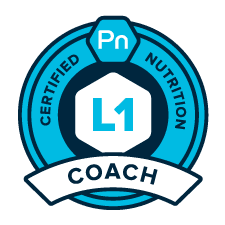Sleep is a Superfood
I’m sure you’ve heard the term “superfood.” People often use this word when referring to blueberries, avocados, broccoli, and dark leafy greens. “Superfood” is more of a marketing term than anything, but let’s roll with it. What, exactly, is a superfood?
su·per·food
/ˈso͞opərˌfo͞od/
Noun
a nutrient-rich food considered to be especially beneficial for health and well-being.
Hmmm. It’s the “beneficial for health and well-being” part for me. Tons of things are beneficial for health and well-being, such as setting healthy boundaries in relationships, good music, fulfilling sex, and even tacos! Why not!? If we’re mainly talking about health and well-being, let me tell you about sleep. Sleep, my friends, is a true superfood.
Sleep Improves Immunity
Loss of sleep can impact the effectiveness of vaccines. Studies have shown that regular failure to sleep for at least seven hours per day resulted in reduced vaccine protection. Insufficient sleep impairs your body’s ability to develop immunological memory, which is your body’s ability to remember how to recognize and react to unwanted intruders.
On the contrary, good quality sleep can improve your body’s ability to attach to and kill infected cells. This is because proper sleep habits improve your immune cells called T cells, which protect the body from infection. For those who already have impaired immune systems, sleep deprivation can exacerbate other issues, thereby making it harder to sleep. You’re sick, so you can’t sleep. But since you’re having trouble sleeping, your body can’t fight disease and you stay sick. It’s a vicious cycle!
Sleep Balances Hormones
Not sleeping enough or sleeping poorly will have your hormones all types of messed up. Sleep can affect many hormones, but today we are focusing on two key players: ghrelin and leptin.
Ghrelin is the hormone that tells your body, “Hey, what’s the deal? We need food. Eat!” Insufficient sleep can cause your body to produce more amounts of ghrelin than usual. Leptin, on the contrary, is the hormone that tells your body, “Yo, you need to chill. We don’t need more food. You just bein extra at this point.” When you skip out on sleep, your leptin levels decrease. So this is what is happening: your hormones are telling you to eat more and at the same time reducing your ability to know that you are full. It’s messed up, right? It’s basically a whole trap.
Other hormones are impacted too! Insufficient sleep increases cortisol (the stress hormone), lowers testosterone (one of the hormones related to sexual appetite), and increases TSH (thyroid stimulating hormone, leading to slower metabolism and hair loss). Scary. I know. The crazy part is that you can prevent much of this by prioritizing quality sleep. Grind hard. Sleep harder.
Sleep Boosts Metabolism
Remember how we talked about how insufficient sleep can jack up your hormones? And remember how jacked up hormones can affect not only your mood, but your ability to shed and keep off excess weight? Well that is because of the link between sleep and metabolism.
Metabolism is the process by which your body turns food and beverages into energy. Sleep deprivation can negatively impact your body’s ability to turn glucose—its preferred energy source—into energy. As we previously discussed, poor sleep can result in decreased leptin levels and increased ghrelin levels. It can also affect your body’s response to insulin, another important hormone.
Several studies have shown that insufficient sleep frequently leads to metabolic dysregulation. This can be in the form of insulin resistance or glucose intolerance. Insulin helps your cells absorb glucose, which the cells then use for energy. Insulin resistance occurs when your cells stop responding normally to insulin. Your cells see insulin and start acting brand new. Glucose can't enter your cells as easily, so glucose, sad and alone, builds up in your blood. This commonly leads to type 2 diabetes.
Sleep Improves Intelligence
Well, sort of. Sleep definitely improves your brain function. You would think that if your brain is functioning better, you’d be more intelligent, right? I agree.
Have you ever pulled an all nighter? You know that groggy feeling the next day when everything is basically sort of a fog and you’re all irritated? Well that happens because loss of sleep hurts our mental abilities, making us moody and irritated due to impaired memory and brain function. A 2009 study showed that sleep deprivation impairs our executive functions. This heightens our emotional responses to situations and makes us more likely to act irrationally.
Sleep deprivation can also have negative impacts on your working memory and ability to pay attention. Working memory refers to your ability to hold onto new information for a brief period of time so you can use it. For instance, you may memorize the phone number stated in a voicemail so you can quickly redial it and return the call.
The gist of it is this: don’t sleep on sleep. While you’re meal prepping and getting your rainbow of veggies in, don’t forget to account for a healthy serving of sleep in your busy schedule. Sleep is a superfood, afterall.




